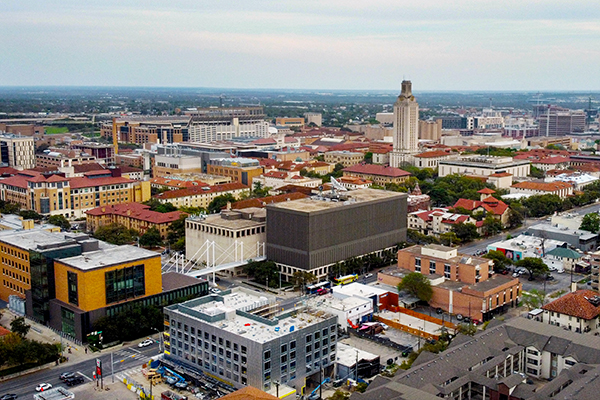Black President’s Leadership Council begins work with UT-Austin administration to fulfill demands laid out by Black student community
May 5, 2021
After the Black President’s Leadership Council began working with the University on action items to improve the Black student experience on campus in April, some council members worry about whether the University will commit to their demands.
“There are a lot of people who don’t think we should demand anything or ask for anything, and we should just be grateful to be here,” said Brianna McBride, co-director of the Black President’s Leadership Council. “I don’t agree. We shouldn’t just be grateful. We deserve to be here, and we deserve to have a happy life as students like other students get to have.”
The Black President’s Leadership Council sent their demands in a letter in late March to UT, President Jay Hartzell and the UT System Board of Regents.
The demands included:
Increasing scholarships, financial aid and internship opportunities for Black students.
A student activity center in East Riverside.
Funding for departments that focus on marginalized communities through research.
Developing affordable housing for students.
Increasing the wages of student workers to $15 an hour and entry-level staff to $18 an hour.
Completing the official Black UT Community demands.
Since then, McBride said members had a “good meeting” April 20 with University administrators, including Hartzell, but the Board of Regents has not responded directly to the Black President’s Leadership Council about their demands.
University spokesperson J.B. Bird said Hartzell discussed plans for follow-up actions and formed a group of UT executive leaders to make progress on the actions.
“UT Austin is firmly committed to advancing diversity, equity and inclusion, and the University shares the broad goals brought forward by Black student leaders to continue to better the University for all of its students,” Bird said in an email.
UT System spokesperson Karen Adler said in an email the regents have not responded because the University is already working with the Black President’s Leadership Council. Adler said the board “enthusiastically” voted in support of Hartzell’s recommendations in July 2020 for a more “inclusive campus.”
Adler said the board will continue to learn more about the efforts and is “grateful” to Hartzell and administrators for continuing the conversation.
McBride said administrators were actually trying to figure out how to implement the actions from the letter during the April 20 meeting with Hartzell.
“They’ve committed to be intentional about the way they go about what we need on campus versus just brushing us off and expecting us not to remember or care in the long run,” McBride said. “It’s not always about having a meeting. It’s about what happens in that meeting, and that’s the thing that’s changed versus what’s happened before.”



